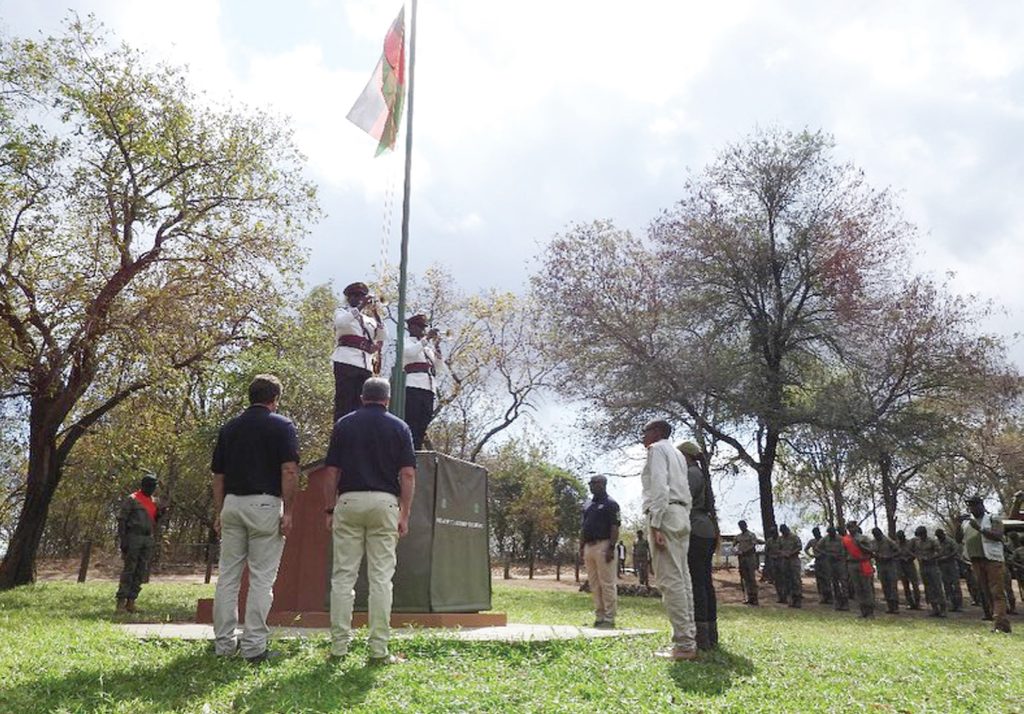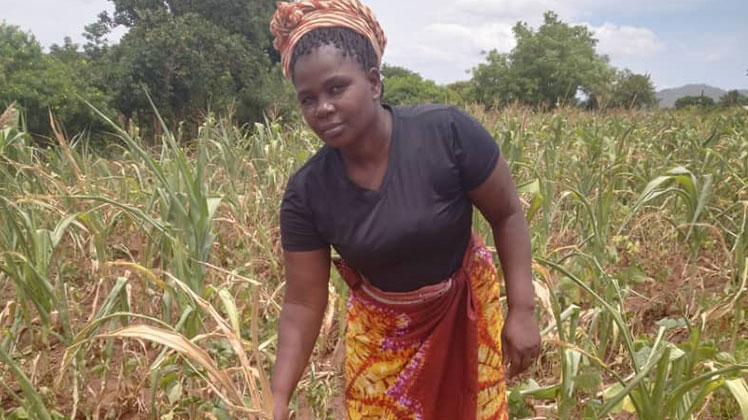‘They did not die in vain’
At Majete Wildlife Reserve in Chikwawa District, Tizola Moyo has seen game rangers killed by the animals they guard and invaders who hunted out all the elephants in the 1990s.
However, he recalls the perilous patrol of October 24 1995 when 10 poachers with AK47 rifles shot his colleague Lennox Mabokosi near Diwa Spring in the 700 square-kilometre reserve.

“Every day, we put our lives on the line to protect these animals because no one will do so if we don’t,” Moyo says, unfazed by the tragic farewell to his colleagues.
On October 20 last year, he waved goodbye to Bendius Amasi, killed by poachers in Chandeta woodlands.
The deceased include ranger Andrew Kamwana and tractor driver Samson Antonio, who were crashed by elephants during patrols.
Their names have been immortalised on a memorial pillar unveiled by Minister of Tourism Vera Kamtukule to mark the 20th anniversary of government’s collaboration with African Parks in Majete.
“This is unacceptable. It’s obscene. We must all fight this,” sighed the minister, gazing at the names etched on the memorial plinth on a sweltering Tuesday morning.
Kamtukule salutes the fearless rangers “who work with pride”, urging them not to surrender to poachers amid chilling dangers that lay in wait day and night.
She states: “Two of the rangers who gave their lives to protect the natural heritage were killed by poachers.
“Poachers are not animals, but human beings. It’s disgusting for human beings to kill another human being because they want to kill an elephant. We don’t want another ranger to be killed while protecting wildlife.”
To Kamtukule, the new monument proclaims that the wildlife protectors did not die in vain.
The rangers work closely with surrounding communities so that animals can leave safely in the tourist destination, located almost 75 kilometres southwest of Blantyre City.
This partnership is credited with the rebirth of the country’s premier home of the big five: lions, leopards, rhinos, elephants and buffaloes.
In 2003, Malawi Government signed a conservation deal with African Parks to manage the reserve where nearly all game had been hunted out. Only monkeys and antelopes roamed in the reserve where no tourist went for three years.
The replenishment kick-started with black rhinos the same year, followed by the reintroduction of elephants in 2006 and lions in 2012.
African Parks has hauled more than 3 500 animals from 17 species into Majete in the past two decades. This includes the introduction of giraffes in 2018, cheetahs in 2019 and wild dogs in 2021.
African Parks chief executive officer Peter Fearnhead salutes Majete’s workforce of 560 who risk their lives to conserve wildlife.
They also empower surrounding communities with income generation strategies, scholarships and safe water to reap the benefits of conservation work.
“Every partnership yields the desired result if there is political support and community involvement,” says Fearnhead. “In Malawi, African Parks has enjoyed excellent partnership with government and chiefs in communities around the park. We thank them for the role they are playing in conservation.”
He also thanks donors who bankroll various initiatives to ensure “Majete survives into the future”.
African Parks country director Samuel Kamoto says wildlife needs to be valued and jealously guarded for tourism and generations to come.
Last year, about 12 000 tourists spent $617 000 (about K650 million) on the home of the big five, up from just 4 000 visitors in 2004.
Kamoto put the rebirth in perspective: “The future of Africa’s wildlife conservation is in partnerships. We thank government for providing policy guidance. The fruit is the rehabilitated Majete, a testimony of how Mother Nature bounces back if given a chance to do so.
“In 2003, Majete was in a sorry state with rampant poaching, bush fires and charcoal making, but it’s now restored to its past glory with all the lost species restored and more introduced.”
Majete contributed 200 elephants to the record translocation of 500 to Nkhotakota Wildlife Reserve.
A biennial aerial census conducted in November 2022 shows that the park, once ravaged by poaching and deforestation, has become a safe home to about 13 000 animals and 18 species.
Chief Kanduku, who leads the joint liaison committee that spearheads community participation and empowerment, is proud no rhino or elephant has been poached since 2003.
“Thanks to effective conservation law enforcement and community engagement, the tourist attraction, which had been reduced to a barren wasteland by poaching and reckless felling of trees, has become a safe haven where animals can flourish and roam in peace,” he says.





